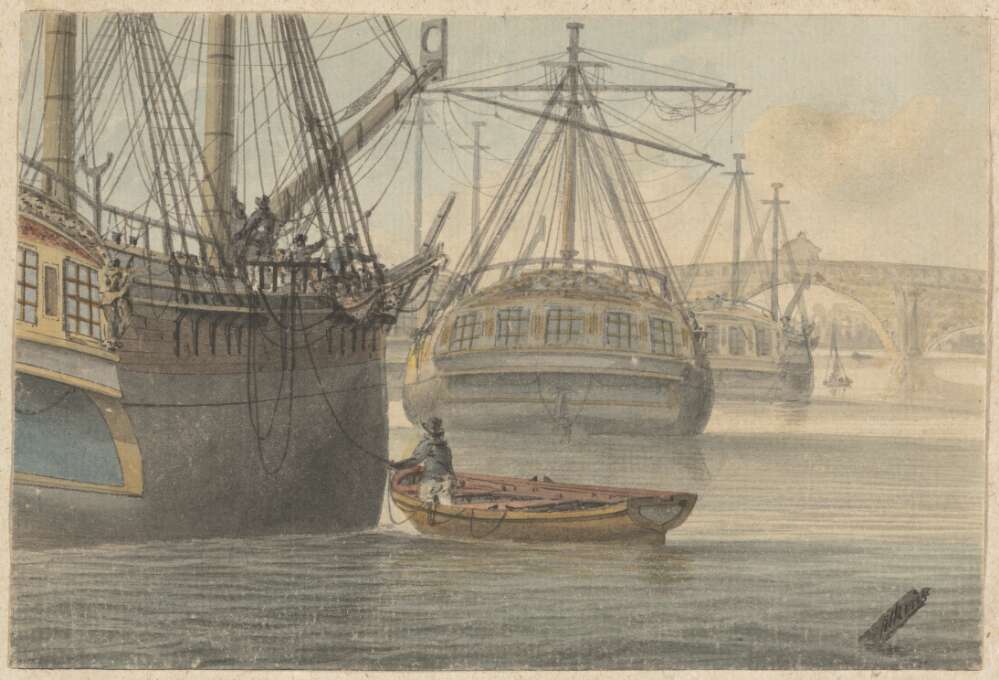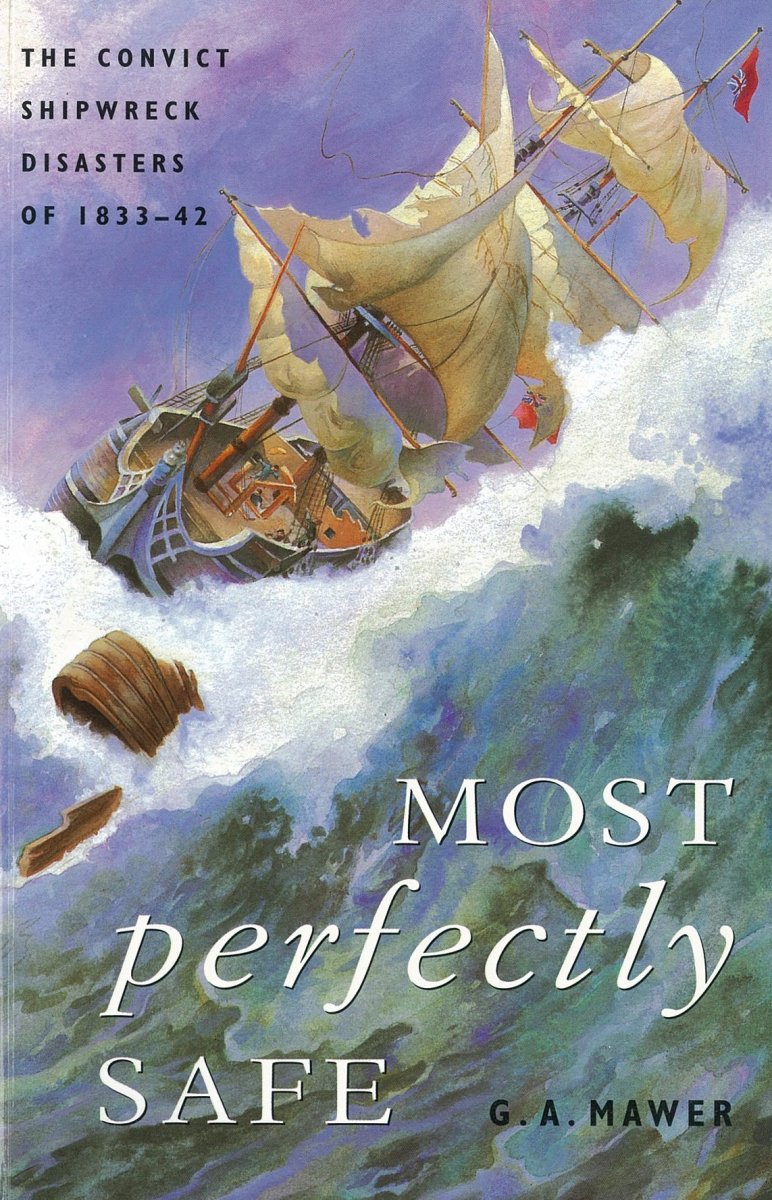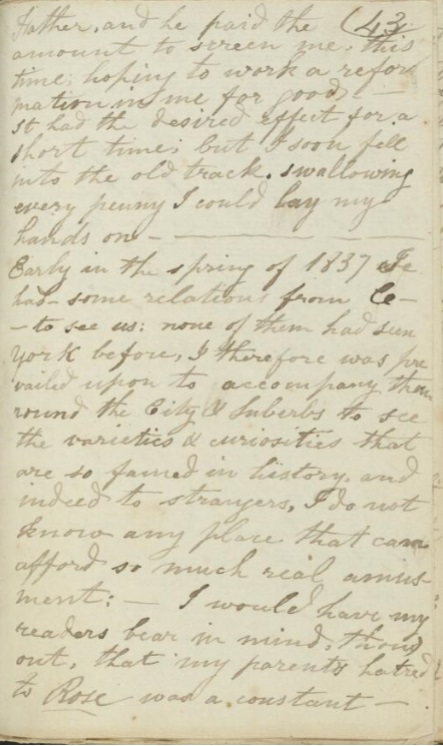
Atkins, Samuel, active 1787-1808, [Ships in the Thames], 1790?, nla.obj-135505485
Online
Convict journals and diaries
Convict journals provide a glimpse of convict life on the voyage to Australia, and sometimes accounts of colonial life. There are very few convict journals which have survived. Search our collection for convict diaries using our online catalogue.
Trove's digitised newspapers
Information about a convict ship's voyage and arrival was often published in Australian newspapers, and you can search many early Australian newspapers through Trove. Newspapers might also mention the number of individuals on a convict ship, the health of the passengers and the standards of cleanliness aboard a ship.
Try searching Trove's digitised newspapers for the ship's name and narrowing the dates as much as you can.
You may also find information about a convict ship or voyage published in a historic overseas newspapers. Registered readers can access a number of overseas historic newspapers through our eResources; or try searching the catalogue for a newspaper title or newspapers published in a particular region. See our Newspapers research guide for hints and tips on searching for newspapers using the catalogue. If you don't have a Library login, you can apply online.
Surgeons' journals
Surgeons' journals may contain information of convicts that have become ill and received treatment, or who have died on the voyage. They might also contain information about the voyage, conditions aboard the ship and the behaviour of convicts individually or as a group.
Australian Joint Copying Project
Surgeons' journals for convict ships can be freely accessed online via Trove, where digitised journals are arranged alphabetically: Registers. Medical journals, Subseries Convict Ships, 1816 - 1856.
Ancestry
Many surgeons' journals for convict ships can also be accessed online via Ancestry. Search the card catalogue on Ancestry for the following record sets:
- UK, Royal Navy Medical Journals, 1817-1857
- UK Surgeon Superintendents' Journals of Convict Ships, 1858-1867
N.B. Ancestry Library edition can be accessed for free on any PC in the National Library building - visit our eResources portal and search for this database under the Browse eResources tab. Ancestry can also be freely accessed at many public libraries throughout Australia.
Microfilmed and other material
Logbooks
Ships' official logbooks often contain information about daily sailing conditions such as wind, coordinates, repairs to the vessel and the ship's provisions. Ships' logs sometimes contain information about individuals aboard a ship in extraordinary circumstances.
The best place to find out if there is an existing ship's log is in the Log of Logs. The Log of Logs is a three volume index in hardcopy book format. It provides information relating to ships travelling to Australia and New Zealand between 1788 and 1990, including convict ships. If you know the name of the ship a convict travelled on, check the Log of Logs to see what sources of information are available for that particular ship or voyage.
The Log of Logs volumes 1-3 are available on open access in the Library's Newspaper and Family History zone.
Ships' logs & Surgeons' journals
Many ships' logs and surgeon journals have been microfilmed as part of the Australian Joint Copying Project (AJCP). The Log of Logs entry for a voyage should state if there is a ship's log or surgeon's journal for a particular voyage, and where it may be accessed.


